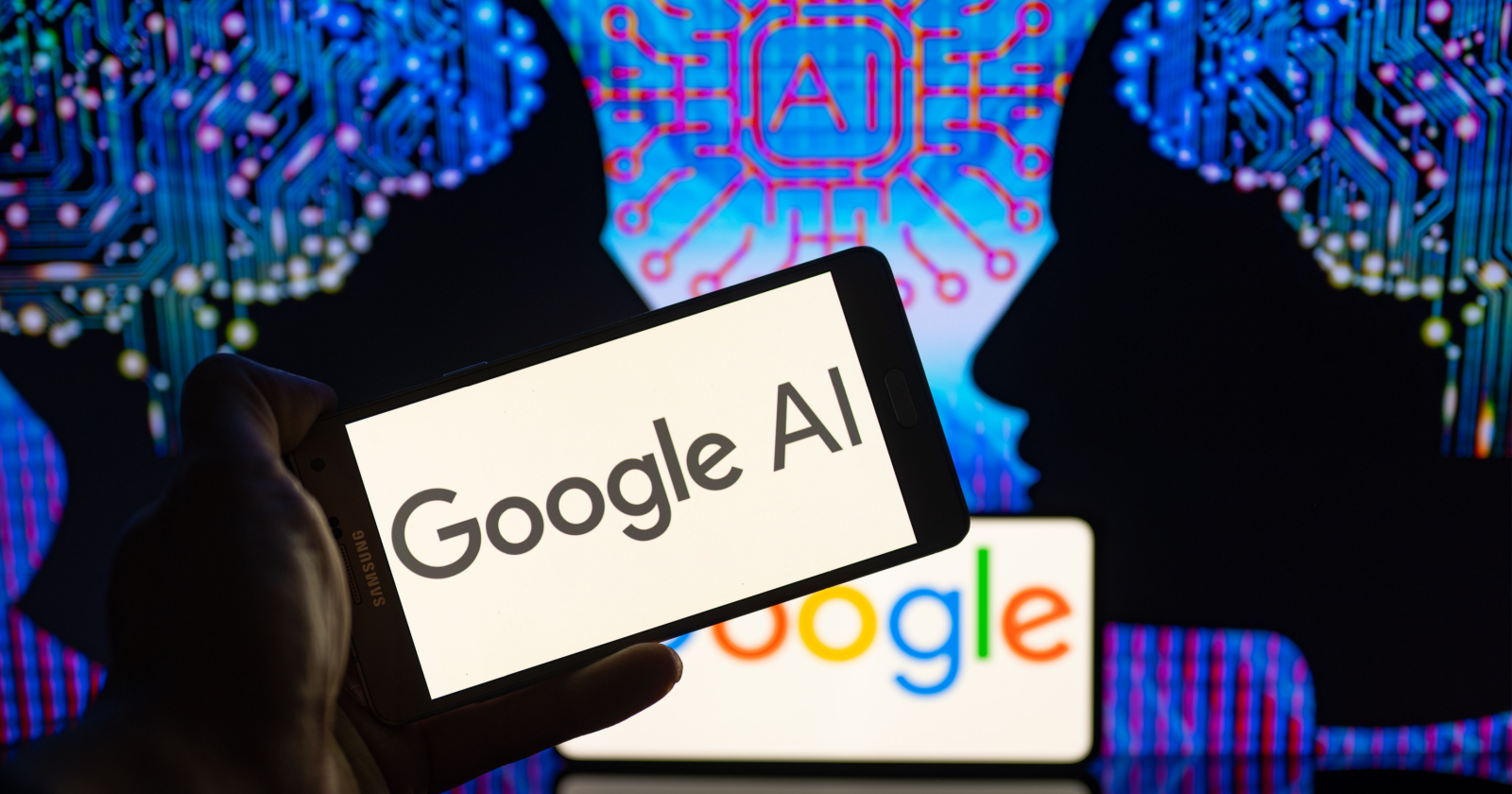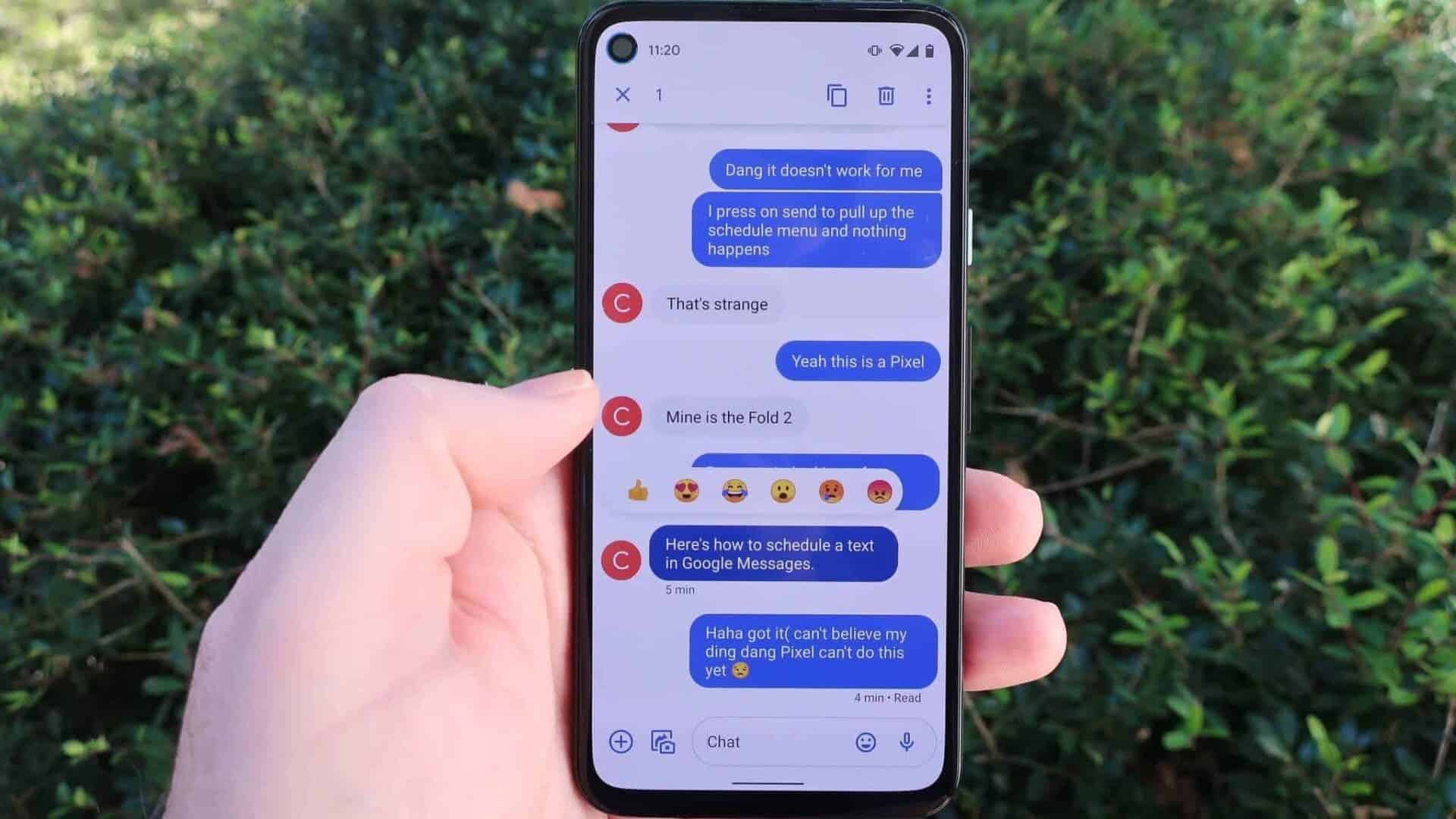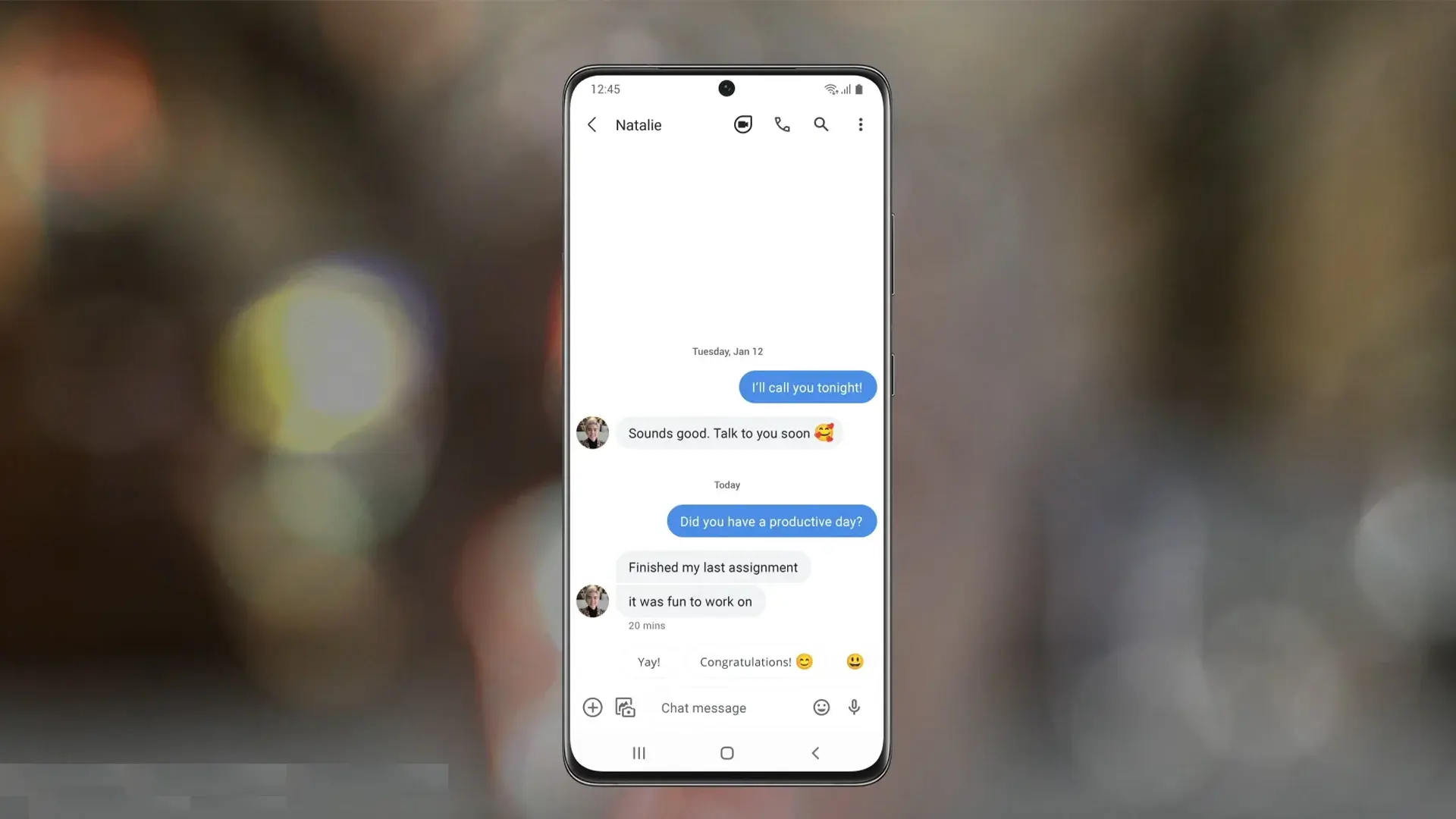The competition between Google, Apple, and Facebook on smartphones is about to enter an exciting phase, particularly for Android users. Google has recently unveiled a significant AI upgrade that has the potential to revolutionize the way Android users interact with their devices. This development promises a noteworthy shift in the smartphone landscape.
The tech giants leading the charge in the realm of smartphone operating systems and app ecosystems have long been engaged in a fierce battle for users’ messaging allegiance. This competition is well-founded, considering the unparalleled stickiness of apps like WhatsApp, iMessage, and Google Messages. These messaging platforms serve as the hub of users’ social networks, drawing them back throughout the day, every day.
Google to Introduce Bard in Android Smartphones

In the midst of this intense competition, where Samsung is contemplating a potential paywall for its smartphone AI offerings, Google is introducing a game-changing proposition. The idea involves seamlessly integrating Bard directly into its core messaging platform. With an existing user interface and user base, this approach eliminates the need for users to install new apps or navigate complex productivity app extensions. It’s a ChatGPT-like simplicity that comes pre-installed on every Android smartphone, marking a significant shift in the landscape of messaging platforms.
Over the past two years, Google has been actively promoting its Messages app as the go-to default Android alternative to iMessage. This effort has encompassed the implementation of end-to-end encryption, default RCS (Rich Communication Services), and the introduction of multiple new features. Now, having achieved these milestones, Google is gearing up for an AI upgrade that not only connects Messages users with each other but also establishes a direct link with Google.
Google Bard to Enhance Messaging in Android Smartphones 
Described by Bard itself, this upgrade is poised to be a “game-changer for how we communicate.” Positioned as an AI assistant embedded within the messaging app, Bard aims to elevate the messaging experience in various ways. From streamlining communication to fostering creativity and offering information, Bard is envisioned as a personalized AI assistant dedicated to enhancing the overall messaging experience for users. This development marks a significant step forward in the evolution of messaging platforms, introducing a new layer of intelligence and functionality to users’ everyday communication.
There were hints last year suggesting that Google was exploring the integration of Bard into its Messages app. Although no concrete details were available at the time. However, with the recent analysis of the latest pre-release APK, 9to5Google has reported that Bard is indeed on its way to Google Messages. The AI assistant is expected to play a role in assisting users in crafting messages. It will also assist in translating languages, identifying images, and exploring interests within the messaging platform. This development signals a potential expansion of Bard’s capabilities and its integration into everyday messaging tasks, further enhancing the utility of Google’s messaging app.
A Smarter Google Messages 
The integration of Bard into Google Messages holds the potential to streamline various tasks, making activities like creating a recipe or drafting a text for your boss more straightforward. However, these examples merely scratch the surface of the broader opportunity that lies ahead, particularly for Google.
The introduction of ChatGPT prompted discussions about the future of web search. Some suggested that the conventional browser-based approach would be eclipsed by a more interactive and conversational model. In response, Google swiftly moved to launch Bard. It recognized the evolving landscape of user interactions and the demand for more engaging and interactive search experiences. This strategic move aligns with the broader industry trend toward AI-driven, conversational interfaces. Therefore, Google is positioning itself to leverage this shift to offer users a more dynamic and personalized search and interaction experience.
AI Aims to Transform the Way we Chat
The integration of AI text composition, image recognition, and information requests is likely just the beginning of the broader strategy to leverage AI chatbots for search purposes. There is no denying that the initial focus may include simpler tasks. However, ultimate goal is to transform chat into a more sophisticated and functional means of commerce interaction. The investment in more advanced structuring for AI models is justified by the potential for AI chatbots to revolutionize how users interact with search functions, leading to more seamless and personalized experiences.
Bard, for example, positions itself as a shopping assistant, offering users various ways to enhance their shopping experience. It can suggest unique gift ideas, compare different product models, provide key features and specs. It can also find reviews and ratings from real users. AI can also search online stores and social media for trending items. Furthermore, it can even track prices across different retailers to ensure users get the best deals. Lastly, it can notify users of price drops and available coupons for items of interest.
This approach aligns with the original intent of Google Allo. Allo struggled due to challenges in effectively combining its assistant and messaging functionalities. Other platforms like Telegram offer chatbot options. But Google’s advantage lies in its familiarity to everyday users. It will also depend on its established position as a global search and advertising ecosystem.
How will other Platforms Respond? 
The key question now is how Apple and WhatsApp will respond. Siri integration into iMessage is a limited option, and WhatsApp, within Meta’s stable, could easily bring a similar functionality. Meta, with its extensive network and cross-platform applications, has the potential to introduce a new dimension to monetization through AI-driven messaging.
However, the challenge arises when AI chatbots are under the control of advertising giants like Google. This could potentially limit the user experience to a Google-centric search window, emphasizing advertiser results. The alternative, as seen in models like Samsung or ChatGPT, involves subscription charges for AI features and services. Yet, users have historically shown a preference for free services, even at the cost of privacy. The emergence of AI in messaging presents an opportunity to replicate the successful business model behind search and other services—advertisers pay to reach users, and services remain free.
Leipzig University’s recent research, titled “Is Google Getting Worse? A Longitudinal Investigation of SEO Spam in Search Engines,” delves into the impact of SEO spam and manipulative practices on the quality of search results. Particularly for product reviews and recommendations. The study raises concerns about the influence of popular online marketing strategies, such as affiliate marketing, on the production of content aimed at maximizing clicks.
The findings suggest that all major search engines, including Google, Bing, and DuckDuckGo, face significant challenges in dealing with highly optimized (affiliate) content. The researchers anticipate a worsening situation in the realm of search engine results with the integration of generative AI, a trend driven by Google.
Conclusion
The upcoming AI update for Google Messages aligns with this broader trend of incorporating AI into various applications. This move is expected to enhance the user experience within messaging platforms. It will allow for AI-driven assistance in tasks such as composing messages, translating languages, identifying images, and exploring interests.
While these advancements bring several positive aspects, there are noteworthy concerns. The potential risk lies in the narrowing down of search results in AI interfaces. Particularly in chat-driven scenarios, where spam and SEO manipulations may influence the quality of responses. The integration of AI in messaging, as seen in Google Messages with Bard, raises questions about data security and privacy. This is because these chats are not secured by end-to-end encryption. Therefore, user data is stored and utilized by Google for algorithm improvement.
On a broader scale, various AI features are making their way into different Google products. These products include Chrome’s new AI releases, Gmail’s Help Me Write feature, and Android Auto’s use of AI for intelligent information filtering. These developments offer positive enhancements. Nonetheless, users are advised to exercise caution and be mindful of the potential implications of AI-driven features in terms of data privacy and search result quality.
As for the release of Bard in Google Messages, Google has not yet announced the release date. However, we expect to be available sometime in 2024, according to information from Bard.





